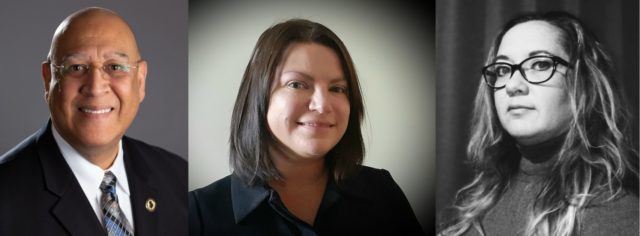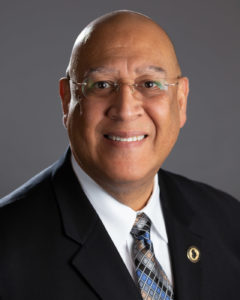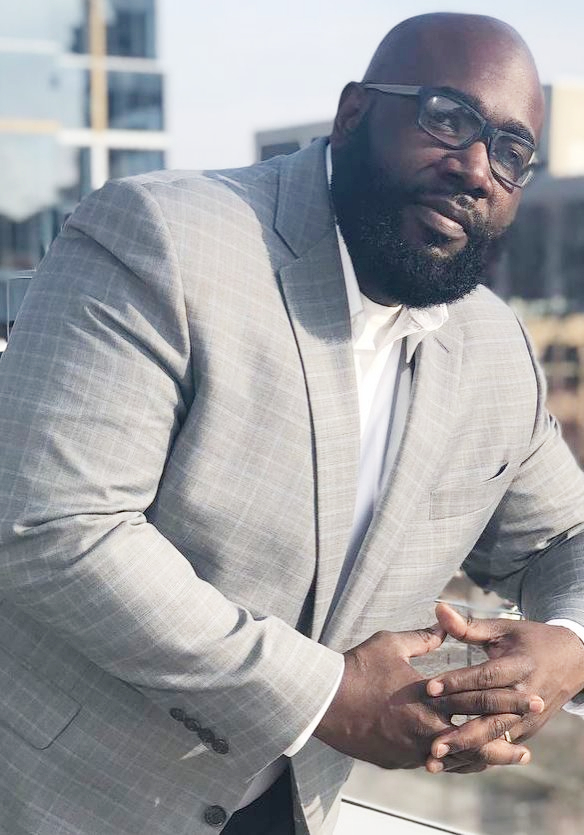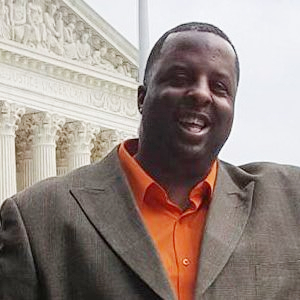
For formerly incarcerated individuals, re-entering society is often a more difficult and uncertain transition than ever before. “Reentry” and “reducing recidivism” have become buzzwords among community leaders and politicians alike. But for Anthony Cooper, Nehemiah’s Vice President of Strategic Partnerships and Reentry Services, it’s not a new conversation.
“People are now feeling pressure to talk about re-entry. There are more re-entry plans nowadays than we probably ever have seen than ever. People will say that it’s because everybody is “woke” now…. But it’s not that. It’s the fact that more and more people are being affected by the challenges of incarceration and the negative effects of what incarceration has done to our community – taking fathers out of the home, taking mothers out of the homes.
“I’m not taking responsibility from the people who have committed a crime, but a lot of times there are certain people who have gotten punished more than others. That’s the problem. Right? If we’re going to really transform and build something for the individuals who have been incarcerated, we need to hold them to be consistent,” he adds.

Cooper is looking forward to these types of frank discussions that will take place at “Reentry Lunch & Learn: Reducing the Prison Population,” a panel discussion that looks at the issues around how to reduce Wisconsin’s overpopulated prison population. The event will take place Thursday, April 14, noon, and will be hosted by Nehemiah, a Madison-area non-profit that provides a wide array of culturally competent and relevant services to meet the reentry needs of men who are leaving jail or prison.
The event will feature Kevin Carr, Secretary of the Wisconsin Department of Corrections, who is returning to the Nehemiah Reentry sessions for an update on the Department of Corrections’ early release plan.

“This event is a chance to hear things from the horse’s mouth, so to speak,” Cooper says. “What are they really doing? We want to really hold them accountable as much as they want to be able to hold individuals who have been incarcerated accountable, as well.
“This is a chance to really be able to hear it from the institution why some of these things have not been happening and what are they really doing to make sure that people are coming home safely and being able to release people who are there underneath ‘old law.’ For people who don’t seem like they are a threat to the community, why are they still being held in prison? What’s the benefit from the community standpoint but also even for that person? What are we doing to reduce the prison population and what are the supports when they get out?”
Cooper, the 2019 recipient of Dane County’s Martin Luther King, Jr. Humanitarian Award, has worked with ex-prisoners for a long time at Nehemiah, coaching and mentoring them through the Nehemiah Center Reentry Services program.
“When you’re coming from prison like I had, and so many others have, it’s hard to jump back into what society wants you to be,” Cooper says. “How do I become this new person? What can I do to make sure, personally, that I don’t go backward and that I continue to go forward? How do I convince employers that I am a better person?
“One of the things that I think is really misleading is that a lot of times people say, ‘Oh, well, we have to as a community to do this for them’ or ‘We have to give them everything.’ That’s not the case,” he adds. “Many people, especially those coming home from prison, say, ‘Look, I’ve done what I’ve done. I’ve served my time. All I’m asking for is some support.’ And the support is really just a hand up and being able to connect with resources for me and my family.”

Cooper says that the upcoming “Reentry Lunch & Learn,” which Nehemiah hosts every month, will be a conversation about what are the next steps and how we as a community can support people coming out of prison and what the Department of Corrections is doing and can be doing, as well.

In addition to Secretary Carr, guest panelists will include Rebecca Barber, Nehemiah’s Reentry Services Housing Coordinator for the Nehemiah Dignity Housing Program, and Lisa Reible, Office of Program Services Director for the Division of Adult Institutions (DAI). Cooper says that at these events, they like to bring a mix of professional and lived experiences to explore the different sides of the issue.
“Rehabilitation is not just something that happens overnight. You have to have a made-up mind. You have to be open to whatever that next step may be … because everybody’s next step is different,” Cooper says. “There are people who are serving time who have done all that they can do and now they’re just sitting there. That person can be so beneficial to the community being a taxpaying citizen, someone who wants to contribute to the community and not take away from the community.”

The event will be hosted by Aaron Hicks, Nehemiah Reentry Coordinator. Those interested in the event, can register for a free Zoom Webinar or watch the live stream on the Justified Anger YouTube Channel.
“We all know the system has not been working for the people it should be working for – people who have been incarcerated. We all know because the system has done so many things that were not necessarily beneficial, we know that it’s a broken system … but it’s broken for the population it’s supposed to serve, not the institution,” Cooper says.
“The institution is a long-standing business plan that may have been tweaked here and there but at the same time, it is a business plan that is working only solely for the institution,” he adds.
Cooper stresses that “Reentry Lunch & Learn: Reducing the Prison Population” is for everybody.
“Everyone, in one way or another, has been affected by incarceration. We know who gets incarcerated more … but the possibility is still there no matter if your parents have a Ph.D. People don’t really feel the effect until it’s at your front door or in your backyard.”

































